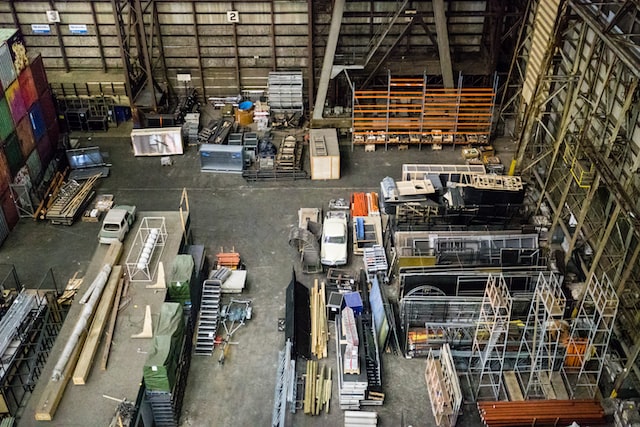
Figures from the Department of Transport for 2019 show that the transport industry was the UK’s no.1 emitter of domestic greenhouse gases – pumping out 124 million tonnes of carbon dioxide and 50% of Britain’s nitrogen oxide emissions. With a committed and urgent industry drive to clean up the industry’s emissions, there couldn’t be a better time for transport businesses to adopt eco-friendly business practices.
When your business ‘goes green’ the benefits really multiply. For example:
1. Your business plays a vital role in protecting the planet
2. It also helps to support the local community in which you operate, whilst providing skilled jobs such as apprenticeships.
3. Green business means less waste and less cost – protecting your budgets and maximising your profits or surpluses.
4. A strong environmental approach to business is one of the most powerful marketing strategies a business can have today. Customers want to shop with values-led, sustainable and ethical businesses that care about the planet, as they do.
5. Eco-friendly business practices can also help to lead to a more secure and robust business which is less reliant on external sources of fuel – and less impacted by rising gas and oil prices, for example.
These myriad business benefits apply to startups as well as to established businesses. Where newer businesses can begin their operation using clean, sustainable and eco-friendly products, inputs and strategies, they avoid the costs of switching away from old-fashioned fossil fuels and non-sustainable materials and build a powerful ‘green’ brand from the start.
How businesses in the transport industry can ‘go green’
So how can transport businesses adopt eco-friendly business practices that deliver these profound benefits? Whatever the sector, these steps are vital to consider:
- Investing in on-site clean energy generation
Businesses with physical premises can consider clean on-site energy generation such as solar PV, mini-turbines and biofuel burners to reduce their reliance on fossil fuels and to improve their security of supply. Businesses can also partner with clean energy providers to utilise green energy tariffs and enter into clean power supply arrangements.
- Logistics and fleet optimisation
Business vehicles can heavily consume fuel, but many businesses are switching to electric vehicles – for example, at airports when repetitive small journeys are required. Many businesses in the transport industry can also look at using cleaner biofuels, such as HVO ‘green’ fuel, and optimise journeys with logistics software that maximises utilisation and minimises wasteful trips.
- Flexible working to reduce commutes
Company policies can extend to employees so that home working and flexible working are encouraged. This reduces carbon emissions from cars on the road and also boosts employee well-being and motivation, as a popular benefit. There are many environmental benefits of working remotely not just for reducing emissions generated by the daily commute, but it helps to improve air quality, and also reduces office waste with paper, power, and plastic.
- Eliminating single-use plastics
Many businesses in the consumer transport industry are seeking to eliminate single-use plastics from their chains. Plastic drinking cups, plates, bags and wraps can be replaced with biodegradable alternatives for example. Customers are offered incentives to bring their own coffee mugs and encouraged to bring their own reusable shopping bags.
- Eco-friendly alternatives
It’s not just the transport industry but many other industries that are seeking to use eco-friendly alternatives in their business operations today. Where transport businesses use cleaning products, they can switch to eco-friendly products that don’t contaminate water systems.
Examples of how transport industry sectors are adopting eco-friendly business practices
The air industry has long been a net polluter, but today’s operators are looking at powerful opportunities with biofuel and cleaner fuel mixes to reduce emissions. Airports are using electric vehicles for maintenance and operation and eliminating single-use plastics in food service, hospitality and retail. Airlines are also sourcing local food for in-flight meals and for airport catering, carbon offsetting to mitigate the impact of flights and also helping to educate consumers on related issues such as ‘over-tourism’.
Where businesses operate commercial road transport, the use of green biofuels such as HVO fuel is pressing – particularly with red diesel now no longer available as of April. HVO fuels are cleaner than diesel, and also more affordable, and many commercial fleet operators are investing in these cutting-edge fuels. These reduce emissions, and – when paired with fleet optimisation software – help fleets to limit wasted journeys, maximise vehicle utilisation, choose the best times to travel (reducing idling time emissions) and generally run in the ‘greenest’ possible way. The same companies are also investing in electric vehicles for shorter journeys.
The national rail system is already one of the greenest ways to travel or transport freight, and trains are using everything from AI sensors to optimise journey operations to clean electricity sources to operate. Railway operators are also investing in natural habitats alongside lines and stations, replanting and supporting local habitats, and adopting a strong ‘reduce, reuse and recycle’ approach to all physical products used within their supply chain. Network Rail is also only partnering with suppliers that have equally clear and ambitious clean energy strategies to support their own circular economy goals.
Whatever sector your business is in within the transport industry, there are serious benefits to adopting green operating methods. How is your strategy incorporating the environmental mandate for 2022?
